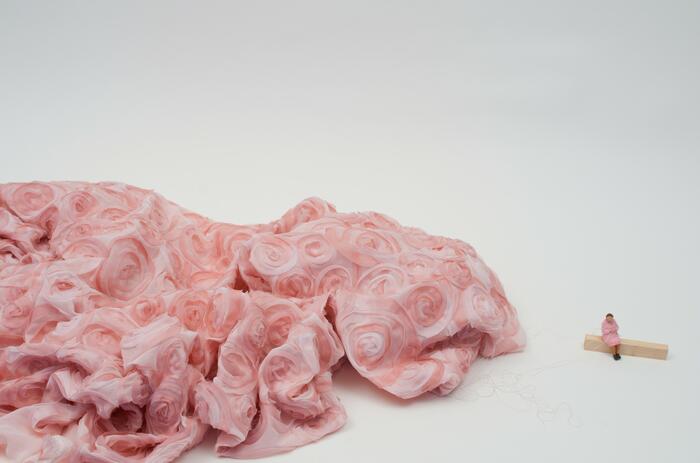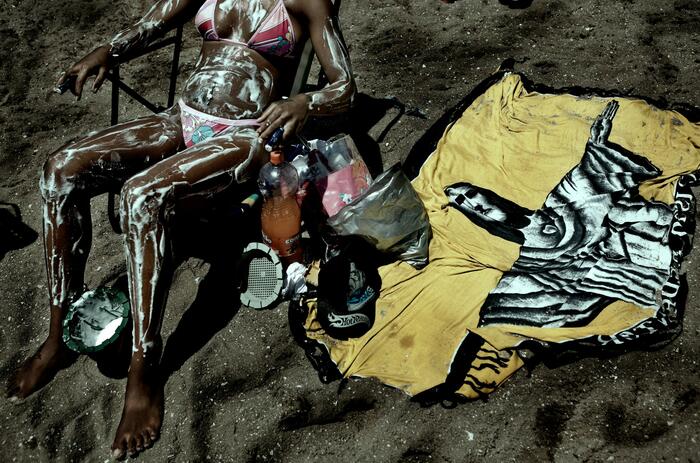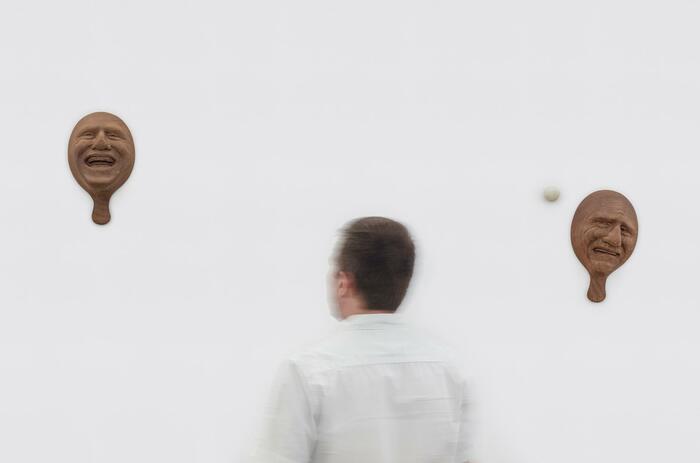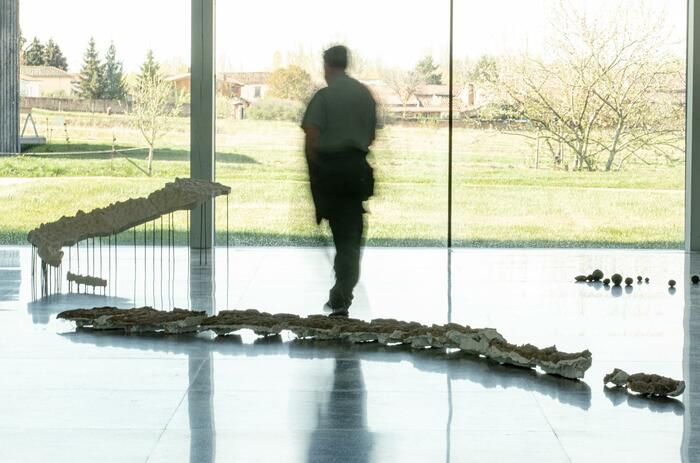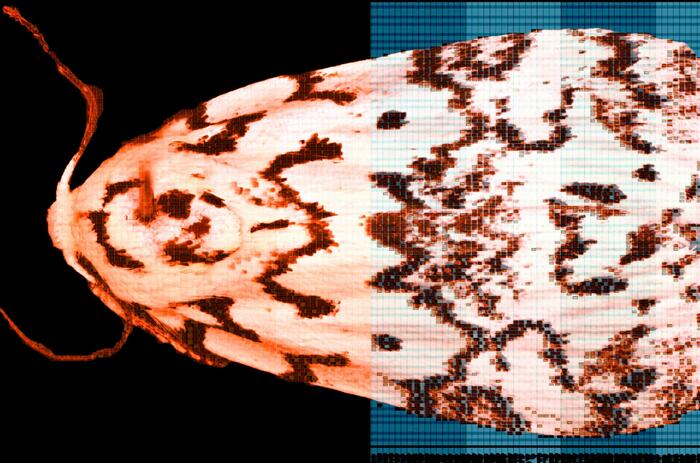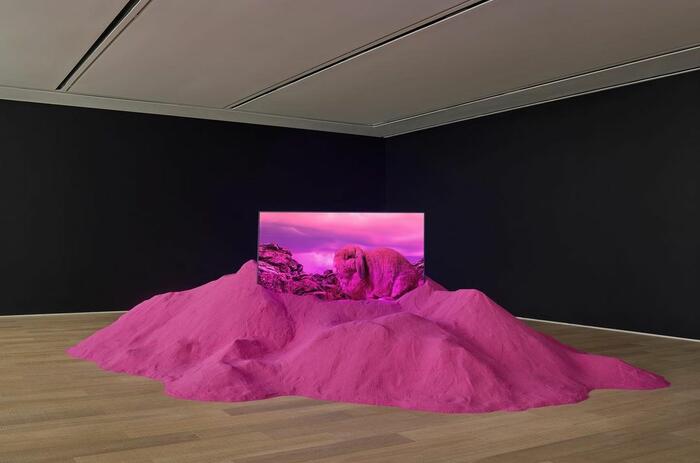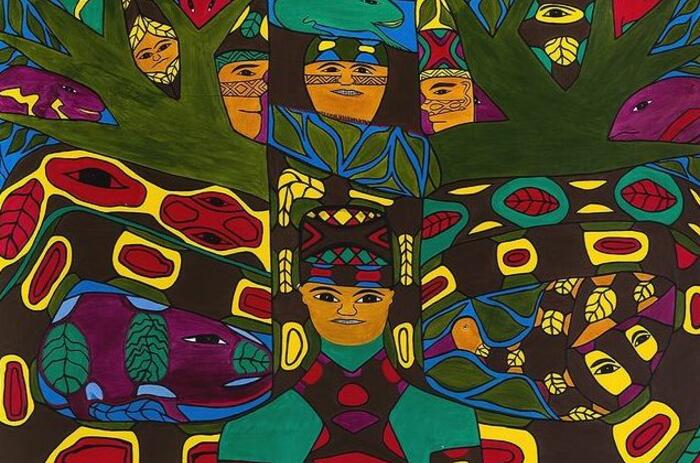DANIEL STEEGMANN MANGRANÉ: ECOLOGY STUDIES
Deeply influenced by the socio-natural context of Brazil, the work of Daniel Steegmann Mangrané (Barcelona, 1977; lives and works in Rio de Janeiro) looks into ecology as a tool to analyse the relationships of mutual transformation.
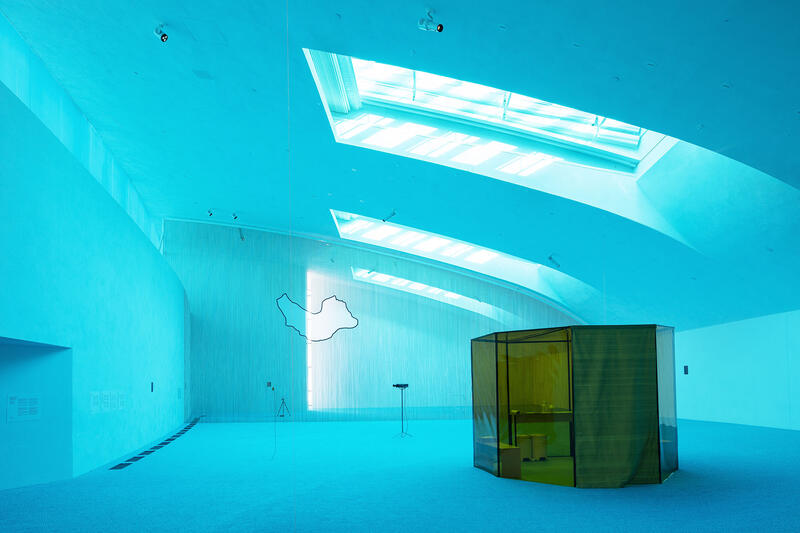
The exhibition A Leaf Shapes the Eye includes a wide array of media such as collage, drawing, holograms, installation, moving image, photography, sculpture, sound, and poetry, and this event marks his Finnish debut in Museum of Contemporary Art Kiasma.
Employing ostensibly opposite ideas such as belonging and dissolution or opacity and transparency, Steegmann Mangrané creates immersive environments by materializing liminal states in which the visual and the material coalesce. Kiasma’s exhibition is a unique opportunity to engage with the artist’s expanded body of work, a cohesive albeit diverse place of experience and a reflection on the multiple networks defining life on the planet.
The fifth floor of the museum is transformed into an immersive installation. A striking element on the top floor galleries is the natural light streaming in from the windows through colored filters, which makes the exhibition change constantly, according to the outdoor light conditions. The floor is lined with blue carpeting, which denaturalizes and further questions a typical museum space.
Nature and artifice often meet in Steegmann Mangrané’s work. What is man-made and what is from nature becomes unclear. For the artist, however, these are not opposites. Humanity is part of nature; it is something we can’t place outside ourselves as if it were merely a backdrop for our necessities. For Steegmann Mangrané, the rainforest – a recurring element in his work – is a metaphor for the interconnectedness of all things.
Echoing the use of bodily, perceptual and sensorial strategies as a means of political participation by such 1960s Brazilian artists as Lygia Clark and Hélio Oiticica, Steegmann Mangrané creates sensual, playful situations, which overcome artificial dualisms that have historically defined our reading of the world. According to him, such dichotomies are not only false but also hierarchical, placing mind above body, rational thought above emotion, and culture above nature, ultimately enabling noxious worldviews. In opposition, Steegmann Mangrané proposes an integrated approach to address the critical moment of ecological crisis we are currently experiencing.
-
Daniel Steegmann Mangrané, Landscape of Possibilities, 2022. Courtain, 2022 & Orange Oranges, 2001. Photo: Finnish National Gallery / Petri Virtanen.
-
Daniel Steegmann Mangrané, Courtain, 2022. Photo: Finnish National Gallery / Petri Virtanen.
-
Daniel Steegmann Mangrané, Elegancia y renuncia. 2011. Photo: Finnish National Gallery / Petri Virtanen.
-
Daniel Steegmann Mangrané, Economic Dune / Model without Qualities, 2011. Photo: Finnish National Gallery / Petri Virtanen.
-
Daniel Steegmann Mangrané, Phasmids, 2012. Photo: Finnish National Gallery / Petri Virtanen.
-
Daniel Steegmann Mangrané, Feral Thought, 2020. Photo: Finnish National Gallery / Petri Virtanen.
-
Daniel Steegmann Mangrané, Table with Objects, 1998, ongoing. Photo. Finnish National Gallery / Petri Virtanen.
-
Daniel Steegmann Mangrané, La Pensée Férale (Feral Thought), 2020. Cibachrome prints and serigraphed texts.

